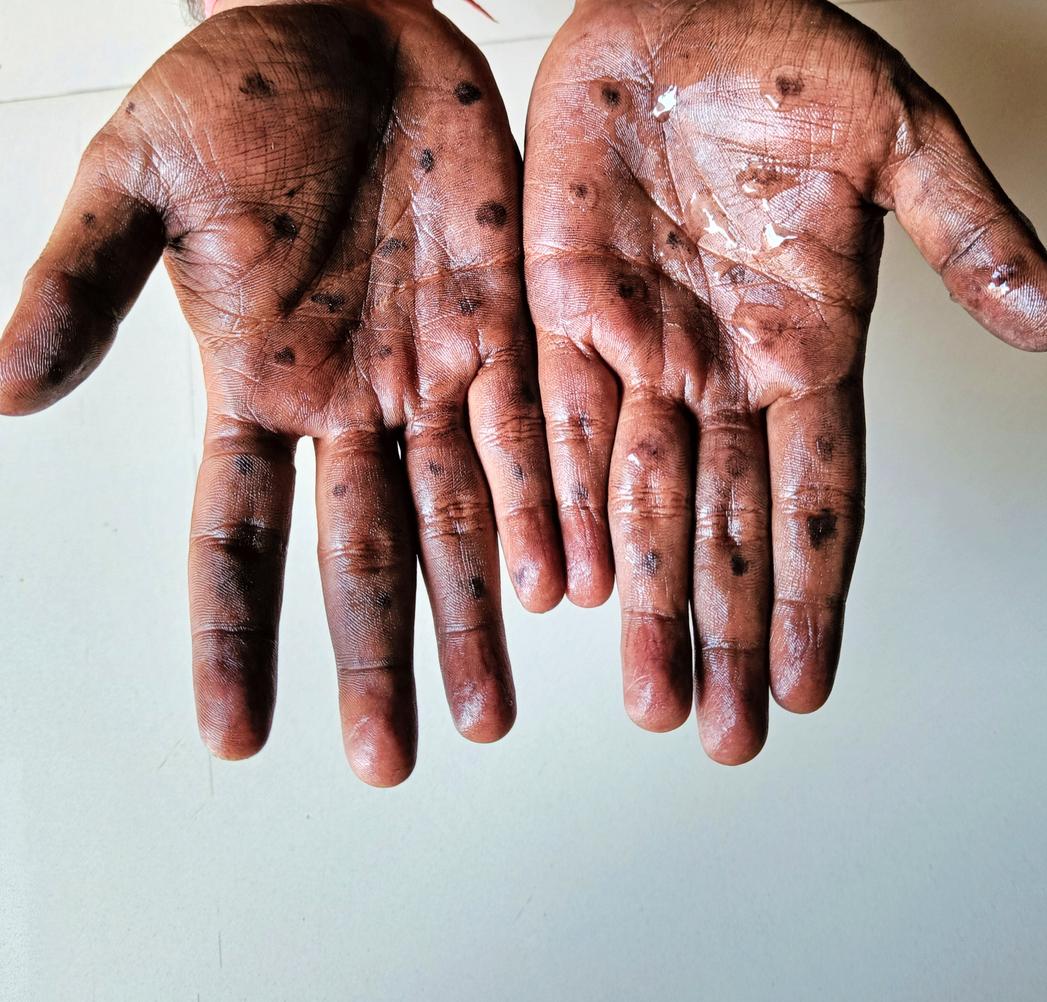Over the weekend, Director-General of the World Health Organization (WHO) Tedros Adhanom Ghebreyesus, PhD, said the ongoing international monkeypox outbreak was a public health emergency of international concern (PHEIC) after a meeting of advisors failed to reach a consensus on the matter.
"We have an outbreak that has spread around the world rapidly, through new modes of transmission, about which we understand too little, and which meets the criteria in the International Health Regulations," Tedros said in statement. "WHO's assessment is that the risk of monkeypox is moderate globally and in all regions, except in the European region where we assess the risk as high. There is also a clear risk of further international spread."
This is the first time Tedros has declared a PHEIC without support of advisors. But the threat of the disease, which is related to smallpox and was once rare outside of Central and West Africa, becoming endemic throughout most of the world pushed the decision.
Tedros said the outbreak is still largely confined to men who have sex with men (MSM), but cases in household contacts of patients, including children, in recent days shows significant community transmission.
"For the moment this is an outbreak that is concentrated among men who have sex with men, especially those with multiple sexual partners," said Tedros. "It's therefore essential that all countries work closely with communities of men who have sex with men, to design and deliver effective information and services, and to adopt measures that protect the health, human rights and dignity of affected communities."
Currently, there are more than 16,835 confirmed cases in 82 non-endemic countries.
CDC: Two cases in kids
The United States has added 298 cases since last week's total, raising the number to 2,891. The number of affected jurisdictions remains at 46.
Late last week, the Centers for Disease Control and Prevention (CDC) said the nation now had two confirmed cases of monkeypox in children, following similar announcements in the Netherlands and Spain.
The detections likely reflect household transmission, the agency said, and are unrelated. One is a toddler from California, and the other is a baby who isn't a US resident but was tested while traveling through Washington, DC.
The CDC also said at least eight cases in the US have been in women.
US considers public health emergency
Bavarian Nordic is in talks with a US contractor to expand production of its monkeypox vaccine, Jynneos. Though the United States has purchased millions of doses, most will not be available until next year.
Today, Anthony Fauci, MD, chief medical advisor to the president, said vaccine strategy in the United States should that MSM who are on pre-exposure prophylactics for HIV should be offered the vaccine first.
And according to the Washington Post, the White House is quietly debating whether to declare monkeypox a public health emergency in light of the pediatric cases and the WHO decision. The White House is also said to be considering adding a monkeypox coordinator position to handle messaging on the outbreak.





















